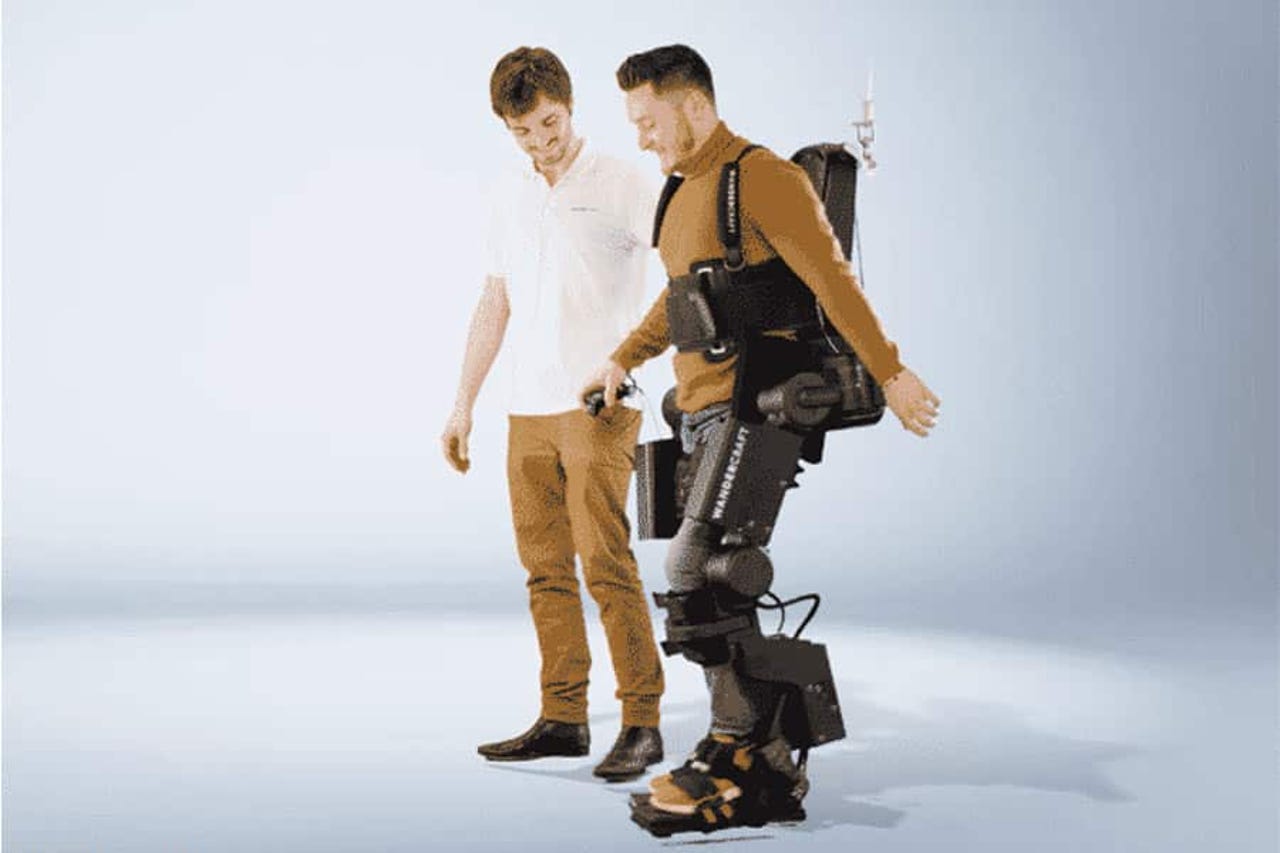































 Wandercraft
Wandercraft A company that develops self-balancing personal and therapeutic exoskeletons has just closed$45 million equity financing. The series C breathes fresh life into a technology class that's been much hyped but has struggled to break out of niche markets.
Founded in 2012, Wandercraft, based in Paris, has been around for a while, but it's less known in the U.S. than rival Ekso Bionics, long the marquee player in the space. Like Ekso, Wandercraft was founded to create a mobility device to supplant wheelchairs for people suffering mobility issues. Also like Ekso, Wandercraft narrowed its focus with its first commercial product and is targeting the therapeutic healthcare market (Ekso has since branched into industrial markets, including auto manufacturing).
"With the support of patients, medical professionals and the DeepTech community, Wandercraft's team has created a unique technology that improves rehabilitation care and will soon enable people in wheelchairs to regain autonomy and improve their everyday health, says Matthieu Masselin CEO of Wandercraft."
Wandercraft's autonomous walking exoskeleton, the first version of which is called Atalante, was commercialized in 2019 and is used by rehabilitation and neurological hospitals in Europe and North America. Atalante provides innovative care for many patients based on realistic, hands-free, crutch-free locomotion. However the company has a more ambitious personal exoskeleton in the works.
The focus on the rehab market out of the gate reflects a hard reality for exoskeleton tech. While visions of providing a robust mobility device to those living with mobility issues is inspiring, the fact remains that wheelchairs are an effective, inexpensive, and widely distributed solution to a broad array of mobility issues. By contrast, robotic suits are comparatively expensive and can't yet match the functionality wheelchairs offer, particularly in accessibility-conscious regions. That makes the market for a mobility-first device elusive, which explains the pivot to therapeutics, where exoskeletons can get wheelchair-bound patients up and walking around, which has tremendous physiological and recovery benefits.
None of which is to say, of course, that the therapeutic market can't serve as an important preliminary toe hold as prices for exoskeleton suits fall and the technology matures. That's precisely what Wandercraft has done, and it believes the time for a personal device has come.
To that end, most of this new round of financing will be used by Wandercraft to fulfil the company's mission of "mobility for all" through the continued development, then launch, of the new Personal Exoskeleton for outdoor and home use. The funding will also allow Wandercraft to accelerate the deployment of Atalante, its pioneering CE marked rehabilitation exoskeleton, in the USA.
"We are thrilled to lead this round of financing and to bring together these responsible investors in order to make the world better," says Alan Quasha, Chairman and CEO of Quadrant Management, which participated in the round. "Wandercraft has developed the world's most advanced technology in walk robotics and markets the first self-stabilized exoskeletons. We share Wandercraft's ambition to provide a new solution for mobility, and to improve the health of millions of people using wheelchairs. We believe that they will transform mobility and become the leading player in the market."
Should Wandercraft succeed in successfully marketing a personal exoskeleton, the next few years will be an interesting bellwether for a technology that hasn't yet lived up to its founding promise.
 Tags chauds:
Innovation et Innovation
robotique
Tags chauds:
Innovation et Innovation
robotique